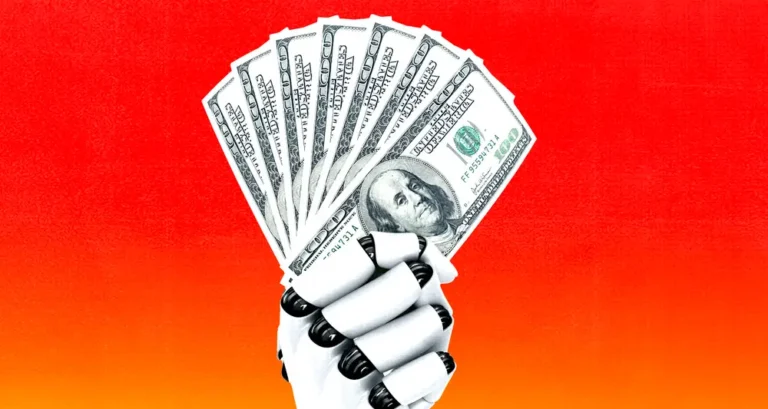TikTok’s plan to bring social shopping to the US is really starting to pay off

TikTok Shop crossed $100 million in US sales on Black Friday.
Social platforms have spent years trying to get Americans to buy stuff from videos, posts, and livestreams. That bet seems to finally be paying off.
The 2024 holiday sales from social media — driven by TikTok Shop and influencer affiliates, among other factors — show how far social shopping has come in the past five years.
TikTok Shop, which had its official wide launch in the US in September 2023, reported $100 million in single-day US sales on Black Friday this year, triple what it drove in 2023. Americans viewed over 30,000 TikTok shopping livestreams that day, with one creator picking up $2 million in sales from a single session.
The company’s holiday gold rush didn’t come easily. TikTok and its owner ByteDance have spent years investing in its e-commerce business, even as competitors like Instagram have pulled back on shopping features.
TikTok began testing out social-commerce features in the US as early as 2020 when it let creators add shopping buttons to some videos. It began rolling out its more advanced product, Shop, in the US to a group of merchants and agencies in November 2022 after testing in other markets like the UK. It’s since built out its own order fulfillment program, enlisted hundreds of outside partners to train merchants and creators on how to sell in-app, and recently began connecting creators with manufacturers to build their own products.
TikTok likely wants to replicate some of the success of its sister app in China, Douyin, which drives hundreds of billions in sales annually, often via influencer livestreams. While TikTok’s numbers are comparatively small, the company has made a ton of progress this year, social-commerce executives told B-17.
Max Benator, the CEO of the social-shopping agency Orca, said he expects to hit just under $100 million in total gross merchandise value, or GMV, in 2024 across the company’s clients, a roughly 10X increase from 2023.
“We’ve now been on TikTok Shop since the very beginning, and we’ve seen successes gradually and consistently increase month over month,” Benator told B-17. “The numbers are serious.”
Outlandish, a TikTok Shop agency that recently opened a livestreaming hub in Santa Monica, said its Shop sellers earned $48 million in US sales in November, up from $20 million in October. The company is betting that live shopping will continue to gain traction in the US, as it has in more mature social-commerce markets like China.
“It’s QVC on steroids,” Outlandish’s founder and CEO William August told B-17.

A TikTok Shop host sells on a livestream in Outlandish’s Santa Monica facility.
Affiliate marketing from influencers and others drove a fifth of Cyber Monday sales revenue
TikTok Shop’s holiday performance was impressive for an e-commerce newcomer, but its business remains a small piece of overall holiday sales.
Total online Black Friday sales in the US hit $10.8 billion this year, up about 10% from 2023, according to Adobe Analytics. Online sales in the US between November 1 and December 2 reached $131.5 billion, and hit $13.3 billion on Cyber Monday alone.
Retailers like Amazon, Walmart, and Target continue to dominate much of online spending, but social-media influencers and other affiliate marketers are playing an increasingly important role in driving purchases on those platforms.
About 20% of US e-commerce revenue on Cyber Monday arrived via affiliate or other promotional links, a 7% year-over-year increase from 2023, per Adobe Analytics.
Outside TikTok and affiliate marketing, other influencer-focused platforms are also reporting meaningful sales volume this year. Live shopping platform Whatnot said in November that it had surpassed $2 billion in year-to-date livestream sales, for example.
TikTok and its partners are proving that US consumers are willing to adjust shopping habits
When TikTok and competitors like Instagram and YouTube first began testing e-commerce features in the US, not all consumers were psyched.
Social media is for entertainment, not shopping, some said. Amazon and other big retailers have long dominated e-commerce, and changing consumer habits is a challenge. Instagram backpedaled on its shopping product last year, removing its Shop tab in February 2023 and eventually partnering with Amazon for its in-app shopping strategy.
But TikTok kept charging forward with social shopping. It enlisted an army of agency partners and livestream coaches to accelerate the adoption of Shop and flooded its feed with videos of creators hawking goods in exchange for a commission.
TikTok’s owner ByteDance was likely behind the company’s determination to make social shopping work as it sought to bring Douyin’s success to TikTok.

TikTok Shop’s US operations lead Nicolas Le Bourgeois made live shopping a priority this holiday season.
Now that live shopping and social commerce are beginning to take hold in the US, TikTok and ByteDance’s push into the category is paying off (though it all could fall apart if TikTok ends up being banned in January due to a divest-or-ban law).
“This is the year that we’ve seen the real beginning of live shopping in America,” said Julian Reis, the CEO of SuperOrdinary, a social-commerce agency that’s worked with TikTok and Douyin. “With TikTok, we’ve had the first real foray into building an ecosystem that ties in entertainment and live shopping together, and a full-service ecosystem that brings in the creators, the affiliates, the products, the brands altogether.”






